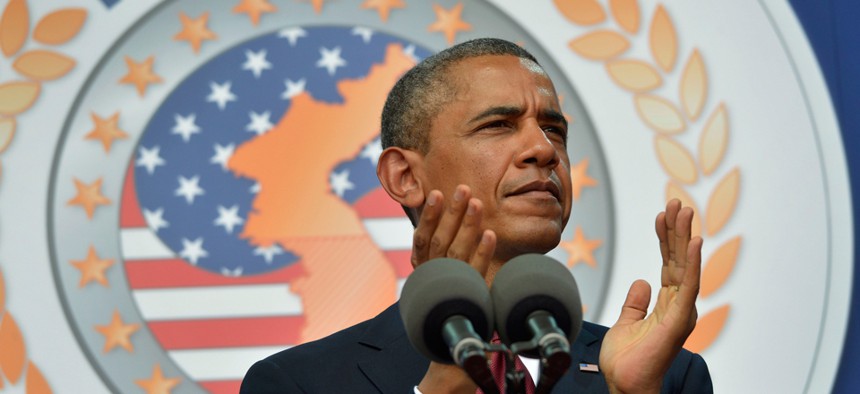Caught between the promise to end the war in Afghanistan, demands from the Pentagon to carry out the military's mission there, and worries over the possible emergence of another ISIS-like group, President Obama approved guidelines in recent weeks to allow the Pentagon to target Taliban fighters in Afghanistan. The measure broadens previous plans that had limited the military to training and counterterrorism missions against al-Qaeda after 2014.
According to The New York Times, which first reported on the new guidelines after speaking with several administration, military and congressional sources, Obama's order allows American forces to target the Taliban and other militant groups, but only when a clear threat can be determined.
"We will no longer target belligerents solely because they are members of the Taliban," a U.S. official told The New York Times. "To the extent that Taliban members directly threaten the United States and coalition forces in Afghanistan or provide direct support to Al Qaeda, however, we will take appropriate measures to keep Americans safe."
The decision, which doesn't change the overall number of U.S. troops that will remain in Afghanistan, includes supporting Afghan troops with American jets, bombers and drones. In May, President Obama announced in the White House Rose Garden that the military would not have a combat role in Afghanistan after 2014. The remaining 9,800 troops would be limited to training Afghan forces and fighting the "remnants of al-Qaeda."
With civilian aides on one side telling the president he should stay on the schedule outlined in May and military officials on the other side saying the president should broaden the mission to target the Taliban and other militant threats, what appears to have changed the president's mind is witnessing the Iraqi forces fold against ISIS in the absence of U.S. military assistance.
U.S. officials said Obama's decision was solidified after Ashraf Ghani was elected president in September. Ghani has been more accepting of a broader American military mission than his predecessor, Hamid Karzai, who was generally viewed as unhelpful to American efforts at the best of times and an obstacle at worst.
As recently as last month, Secretary of Defense Chuck Hagel said that the Afghan military was prepared to handle the security of the country.
"The Afghan national security forces will be fully responsible for their country's security," said Hagel, "an accomplishment made possible by the tremendous sacrifices of American troops, our [International Security Assistance Force] partners and the Afghan people."







